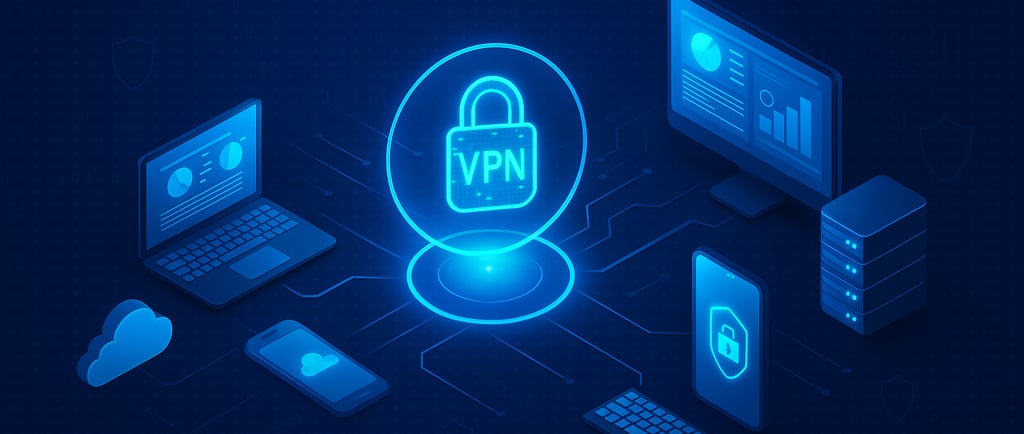The Role of VPNs in Online Privacy
VPN


In today’s hyper-connected world, online privacy has become one of the biggest concerns for internet users. Every click, search, and purchase leaves behind a digital trail that can be tracked, sold, or even exploited. From advertisers to governments, countless entities want a piece of your data. One of the most effective tools for regaining control over your digital life is a Virtual Private Network (VPN). But what exactly is the role of a VPN in protecting your online privacy, and what are its limitations?
Why Online Privacy Matters
Without privacy, your digital footprint can be used against you in subtle and not-so-subtle ways:
Advertisers build profiles on you to serve targeted ads.
ISPs (Internet Service Providers) can log your browsing history and sell it to third parties.
Hackers can intercept unprotected traffic to steal passwords and personal data.
Governments in some regions monitor online activity to censor or control information.
In short: your online activity is far from private without protection.
How a VPN Protects Your Privacy
1. Encrypting Your Traffic
A VPN creates an encrypted tunnel between your device and the VPN server. This means that even if someone intercepts your connection, they only see scrambled data rather than your actual browsing activity.
2. Masking Your IP Address
Your IP address reveals your location and can be tied to your identity. By routing your traffic through its servers, a VPN hides your real IP, replacing it with the server’s address. This makes it harder for websites, trackers, or malicious actors to pinpoint you.
3. Stopping ISP Tracking
Without a VPN, your ISP can monitor everything you do online. With a VPN, all your ISP sees is that you’re connected to a VPN server—not what sites you’re visiting.
4. Bypassing Data Collection by Advertisers
Many advertisers use your IP and browsing habits to track you across the web. A VPN helps disrupt this profiling by hiding your true identity.
5. Protecting You on Public Wi-Fi
Public hotspots are notorious for data theft. A VPN shields your information so hackers can’t capture your logins, messages, or financial details.
The Limitations of VPNs for Privacy
While VPNs play a huge role in protecting privacy, they’re not a silver bullet. You should be aware of their limits:
Cookies and Trackers: A VPN can’t stop websites from using cookies or fingerprinting to identify you.
Logged VPN Providers: Some VPNs log user activity, which can compromise privacy. Always choose providers with strict no-logs policies.
Device Security: A VPN won’t protect you from malware, phishing scams, or unsafe downloads.
In other words, a VPN is one layer of defense—it should be combined with good browsing habits, strong passwords, and security software.
Practical Scenarios Where VPNs Enhance Privacy
Shopping Online – Prevents retailers from tracking your browsing and pricing habits.
Remote Work – Protects company and personal data while working from different locations.
Traveling Abroad – Secures your connection when using foreign networks or hotel Wi-Fi.
Social Media Use – Helps minimize the amount of data social platforms collect about you.
Censorship Circumvention – In restrictive countries, VPNs protect your identity while accessing open information.
Choosing a Privacy-Focused VPN
If privacy is your main concern, make sure your VPN has:
AES-256 encryption or equivalent modern standards.
A verified no-logs policy (ideally audited by third parties).
Jurisdiction in a privacy-friendly country (outside surveillance alliances like Five Eyes).
Features like kill switch & leak protection to prevent accidental exposure.
Final Thoughts
A VPN is one of the most powerful tools available for preserving online privacy. By encrypting your traffic, hiding your IP, and preventing ISP and advertiser tracking, VPNs give you greater control over your digital life.
That said, a VPN isn’t magic. It won’t stop social media from collecting data you willingly provide, nor will it protect you from malware. Instead, think of a VPN as a foundation of online privacy—a tool that, combined with smart digital habits, ensures your personal information stays private in an increasingly monitored world.